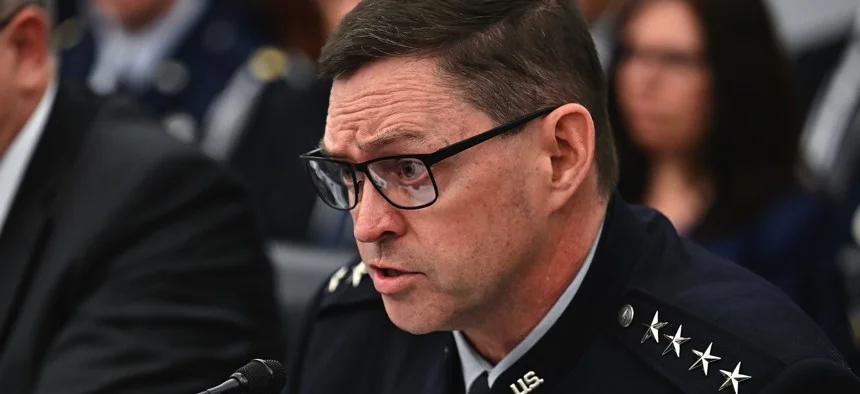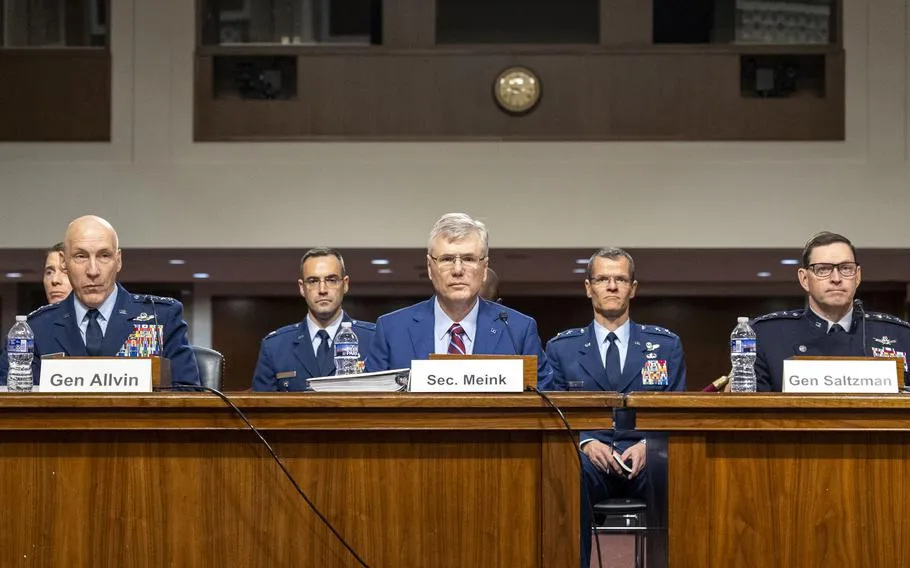
Space Force Faces Workforce Crisis: Civilian Cuts Threaten Mission Capabilities
The Space Force, the youngest branch of the U.S. military responsible for safeguarding American interests in space, is grappling with a significant challenge: a 14% reduction in its civilian workforce. This unexpected downsizing, driven by defense-wide cost-cutting measures, threatens to undermine the Space Force's ability to execute its expanding mission in an increasingly complex and contested domain. The cuts are happening amidst Space Force taking on new roles and missions, including preparing for offensive and defense operations in space, and helping construct the new Golden Dome architecture.
Gen. B. Chance Saltzman, Chief of Space Operations, brought the issue to light during a recent Congressional hearing, stating that the civilian workforce will be almost 1,000 personnel short of its projected size by the end of 2025. This reduction is a direct consequence of the Trump administration's initiative to shrink the Department of Defense's civilian workforce through early resignations and hiring freezes. 
Saltzman emphasized the crucial role civilians play within the Space Force. They provide specialized expertise not readily available amongst active-duty personnel and ensure continuity across essential processes. A Space Force spokesperson confirmed that the majority of cuts came from those who opted into the so-called deferred resignation program, which comes with incentives to leave offered by the Defense Department.
"We rely heavily on our civilian workforce," Saltzman stated. "They bring expertise that we don't have in Active-duty. They bring corporate continuity across all of our processes and procedures." He also expressed concern about the loss of acquisition professionals, essential for procuring the new systems and platforms the Space Force needs to fulfill its expanding responsibilities. "I'm worried about replacing that level of expertise in the near term as we try to resolve it and make sure we have a good workforce doing that acquisition," he said. The reductions are proportionate to job specialties and pay grades.
The timing of these cuts is particularly concerning. The Space Force is taking on significant new missions, including developing satellites to track moving targets and contributing to the Golden Dome missile defense program. Senator Jack Reed of Rhode Island, a ranking member of SASC, warned that these ambitious endeavors cannot be achieved without a skilled and robust workforce: "We're not going to do all these great scientific and developmental and modernization issues without these critical workers."
The long-term implications of the civilian workforce reduction remain unclear. The Space Force is currently evaluating its future size and will redistribute personnel as needed. However, the immediate impact is likely to be felt across the force, potentially hindering its ability to adapt to evolving threats and maintain its competitive edge in space.
What will this reduction in civilian personnel mean for the future of the Space Force and its ability to protect U.S. interests in space? Share your thoughts and concerns in the comments below.